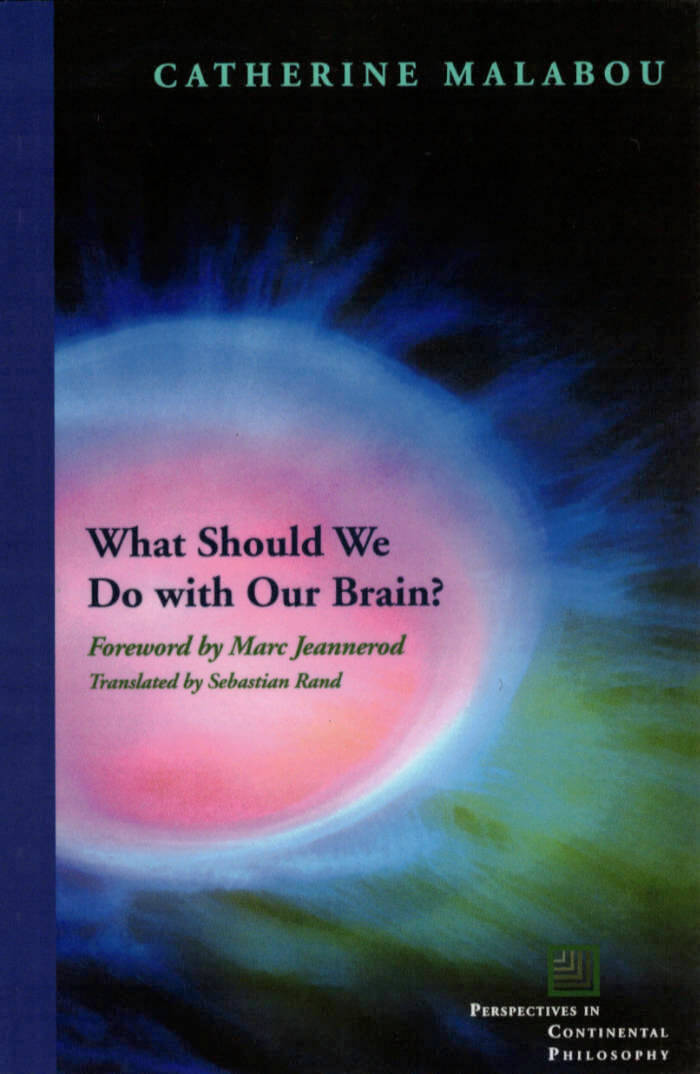Fordham University Press
Fordham University Press

What Should We Do with Our Brain?
Recent neuroscience, in replacing the old model of the brain as a single centralized source of control, has emphasized “plasticity,” the quality by which our brains develop and change throughout the course of our lives. Our brains exist as historical products, developing in interaction with themselves and with their surroundings.
Hence there is a thin line between the organization of the nervous system and the political and social organization that both conditions and is conditioned by human experience. Looking carefully at contemporary neuroscience, it is hard not to notice that the new way of talking about the brain mirrors the management discourse of the neo-liberal capitalist world in which we now live, with its talk of decentralization, networks, and flexibility. Consciously or unconsciously, science cannot but echo the world in which it takes place.
In the neo-liberal world, “plasticity” can be equated with “flexibility”—a term that has become a buzzword in economics and management theory. The plastic brain would thus represent just another style of power, which, although less centralized, is still a means of control.
In this book, Catherine Malabou develops a second, more radical meaning for plasticity. Not only does plasticity allow our brains to adapt to existing circumstances, it opens a margin of freedom to intervene, to change those very circumstances. Such an understanding opens up a newly transformative aspect of the neurosciences.
In insisting on this proximity between the neurosciences and the social sciences, Malabou applies to the brain Marx’s well-known phrase about history: people make their own brains, but they do not know it. This book is a summons to such knowledge.

Let Them Rot: Antigone's Parallax
A provocative, highly accessible journey to the heart of Sophocles' Antigone elucidating why it keeps resurfacing as a central text of Western thought and Western culture.
"Zupančič writes with rare lucidity and patience for exposition, helped along by a talent for turning peculiar phrases or seemingly senseless jokes into full-blown insights. Her ideas are fresh, as if they hailed from some open air beyond the clutter of current theoretical quarrels. This brilliant account of Antigone breaks new ground for philosophy, psychoanalysis, and political and feminist theory."—Joan Copjec, Brown University
There is probably no classical text that has inspired more interpretation, critical attention, and creative response than Sophocles' A ntigone. What is it about the figure of Antigone that keeps haunting us? To what kind of always contemporary contradiction does the need, the urge to reread and reimagine Antigone—in all kinds of contexts and languages—correspond?
The violence in Antigone is the opposite of "graphic" as we have come to know it in movies and in the media; rather, it is sharp and piercing, it goes straight to the bone. It is the violence of language, the violence of principles, the violence of desire, the violence of subjectivity. From this question of violence, the author turns to questions of funerary rites and of the relation of Antigone's singularizing claims to her universal appeal. What, Zupančič asks, does this particular (Oedipal) family's misfortune, of which Antigone chooses to be the guardian, share with the general condition of humanity? This forces us to confront the seemingly self-evident question: "What is incest?"
Let Them Rot is Alenka Zupančič's absorbing guided tour of the philosophical and psychoanalytic issues arising from the Theban trilogy. Her original and surprising account illuminates the play's ongoing relevance and invites a wide readership to become captivated by its themes.
Alenka Zupančič is Professor of Philosophy and Psychoanalysis at the European Graduate School and a researcher at the Institute of Philosophy at the Slovene Academy of Sciences and Arts. Her books include What IS Sex?, The Odd One In: On Comedy, and Ethics of the Real.